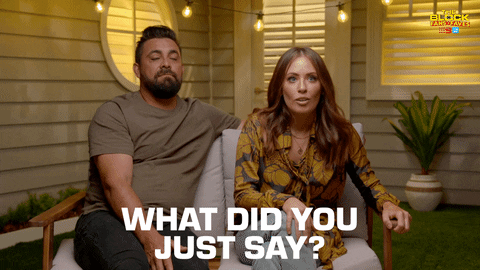Reality tv, Olympic gold medals, and storytelling
It might surprise you to know that I am a sucker for reality tv—especially competition shows where people stretch themselves to achieve something difficult.
For me this includes everything from RuPaul’s Drag Race to Alone to Masterchef Australia to (shout out once again to my Australian readers) The Block.
While reality tv can be a great way to shut off your brain and relax, I think there’s always something to learn from the stories we consume—whether that’s literature, lectures, or watching people try to build and decorate an entire house in three months.
So for today, here’s just one little nugget I picked up while watching tv in my sweatpants. It comes from Carrie Anne Inabe, who’s been a judge on Dancing with The Stars since 2005.
After watching Alyson Hannigan (an underdog of the season who made it to the final round by performing with a lot of heart rather than technical skill) Carrie Anne leapt to her feet and exclaimed:
“People don’t care about perfection. They just want to see a person, giving it their all.”
I couldn’t agree more.
Of course we want to have our stories “just right”. Of course we want our messages to be perfectly crafted, our arguments irrefutably constructed, expertly delivered.
And, there is both an art and science to this—it’s what I do.
But what I want to do most is help you show up to whatever communications and engagements lie in front of you with presence and humanity.
In truth, this can be much more challenging than just writing something good. Letting other people truly see you—as a person, doing their best—is deep work.
Let’s be honest, you’re not always going to win. Alyson didn’t. But she did make it to the final round. She gave it her all, every time. She showed people who she really is—and the audience (and judges) loved her for it.
No one knows this tension better than today’s podcast guest, Chandra Crawford.
Chandra Crawford is an Olympic Gold Medalist and 3x Olympian in Cross Country Skiing born and raised in Canmore, Alberta, Canada.
After retiring from ski racing in 2014, Chandra completed her MBA at the University of Calgary, got married, continued to lead the national charity she founded in 2005 ("Fast and Female") and had 4 kids. Today, she’s a sought-after speaker who loves to address pressing topics such as burnout, resilience, and mental health.
Impressive right? It might be hard to imagine that such a successful and accomplished person has wrestled with things like vulnerability and the inner critic, but in this discussion, you’ll hear about some of Chandra’s personal battles—and how she’s spent years getting more comfortable talking about the uncomfortable stuff.
Today, Chandra integrates both the highs and lows of her life into her keynote speeches and courses—sharing, for example, about the loss of her young brother to addictions, and her battles with eating disorders—all in service of connecting with her audience.
In our discussion, Chandra reveals:
➡️ how one leader told her to “take it easy on the gold medal stories” and share something more relatable.
➡️ the time she “chickened out” from telling a more vulnerable story and reverted to the script that felt safer… and what she learned from the experience.
➡️ how she returned to the Olympics after hitting bottom in her own life, and the approach she used that made it possible.
➡️ how she used self-compassion techniques to make it through her MBA, despite the overwhelm and a near-phobia of spreadsheets.
Towards the end of the interview (46:57) Chandra turns the tables on me and seeks my advice on storytelling and speechwriting. We cover:
➡️ How to make the audience the hero of your story
➡️ The narrative arc and why your audience is going on a journey with you
➡️ Why you shouldn’t get too worried about doing things “right” and should embrace the process instead.
Have a listen on my website, Spotify, Apple, Google, Amazon, and anywhere else you listen to podcasts. And keep on showing up—and showing the rest of us exactly who you are.


